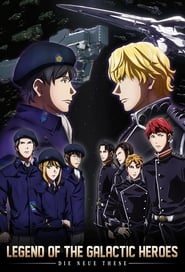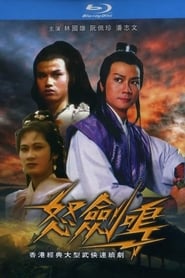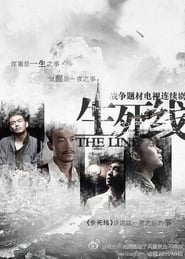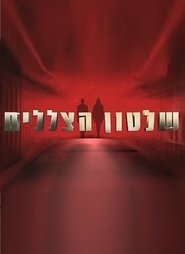Best War Politics TV Series - Page 4
-
Baa Baa Black Sheep
1976
star 7.7The dramatized World War II adventures of US Major Gregory "Pappy" Boyington and his Marine Attack Squadron 214, AKA The Black Sheep Squadron. -
Gallipoli
2015
star 6.9As dawn breaks on April 25, 1915, ANZAC troops go into battle on the beaches of the Gallipoli peninsula. Landing in the dark chaos, Tolly, Bevan and their mates struggle to establish a tenuous foothold on the treacherous slopes and deep ravines. They endure the next eight months on the peninsula learning lessons of survival. By the time of the final evacuation they have also learned the skills of combat and what it means to be a young man in war. -
12 O'Clock High
1964
star 7.3This series chronicles the adventures--in the air and on the ground--of the men of the 918th Bombardment Group of the U.S. Eighth Air Force. First commanded by irascible General Frank Savage--and later by Colonel Joe Gallagher, the son of a Pentagon General--the Group is stationed in England, and flies long-range bombing missions into German-held Europe. -
A French Village
2009
star 7.9The stories of the people of Villeneuve, a fictional subprefecture, in the Jura, in German–occupied France during the Second World War. -
Fauda
2015
star 7.4A top Israeli agent comes out of retirement to hunt for a Palestinian militant he thought he'd killed, setting a chaotic chain of events into motion. -
The Legend of the Galactic Heroes: Die Neue These
2018
star 7.7In humanity's distant future, two interstellar states - the monarchic Galactic Empire and the democratic Free Planets Alliance - are embroiled in a never-ending war. The story focuses on the exploits of rivals Reinhard von Müsel and Yang Wen Li as they rise to power and fame in the Galactic Empire and the Free Planets Alliance. -
Wounded Love
2016
star 7.9Azize finds herself with her 3 children and mother-in-law in a difficult fight. She raises her children while fighting the difficulties of the war period and her husband's absence whom she loves more than anything. It's about war, love, greed, treason and sacrifice. -
TURN: Washington's Spies
2014
star 7.1The story of New York farmer, Abe Woodhull, who bands together with a group of childhood friends to form The Culper Ring, an unlikely group of spies who turn the tide in America’s fight for independence. -
Reputasyon
2011
star 6Reputasyon is a Philippine romance drama previously aired by ABS-CBN. It stars Cristine Reyes together with Rayver Cruz and Jason Abalos. It also stars the daytime television comeback of Aiko Melendez and Jaclyn Jose. It originally aired on the 2:00-2:45 p.m. timeslot, until September 19, 2011 when it was moved to the 5:00-5:45 p.m. timeslot as requested by the televiewers. -
Sword of Fury
1979
Sword of Fury
1979
In the sixth year of Baoyou, the Mongol army pressed the border, and Fan Chengshun general Zhang Tianshun saved the people of Fancheng, handed over the yellow dragon sword containing the anti-yuan roster to the partial general Fan Guoxing, and then killed himself, so that Guoxing sent his head to surrender the enemy. Since then, Guoxing has been known as a traitor, and his son Fan Qiu was born in the countryside and lived incognito, and many years later he was discovered by Mrs. Qiu Wan, who "pierced the heart with a sword". During Qiusheng and Guoxing's exile, he met Liu Qinglian, who was ordered by his mother to insist on a duel with Mrs. Wan and killed her with her own hands. On the other side, Zhang Qi, who had been adopted by a Mongol since childhood, was arranged to appear as the son of Tianshun, and colluded with Ling Chufeng, the head of the famous sword gate, in an attempt to eliminate the anti-Yuan forces in the Central Plains. -
Foyle's War
2002
star 7.8As WW2 rages around the world, DCS Foyle fights his own war on the home-front as he investigates crimes on the south coast of England. Foyle's War opens in southern England in the year 1940. Later series sees the retired detective working as an MI5 agent operating in the aftermath of the war. -
Cuéntame cómo pasó
2017
star 2The series interspersed the most significant historical events of the southern country with the comings and goings of a family living in the suburbs of Buenos Aires. -
North and South
1985
star 7.4The story of the enduring friendship between Orry Main of South Carolina and George Hazard of Pennsylvania, who become best friends while attending the United States Military Academy at West Point but later find themselves and their families on opposite sides of the American Civil War. -
Resurrection: Ertugrul
2014
star 7.8Ertuğrul Bey and the Knights Templar in the 13th century Alba and step and step with the struggle against brutal Mongols depicts the process of establishing the Ottoman principality. -
State Rules
2018
State Rules
2018
-
Tour of Duty
1987
star 8The trials of a U.S. Army platoon serving in the field during the Vietnam War.



















